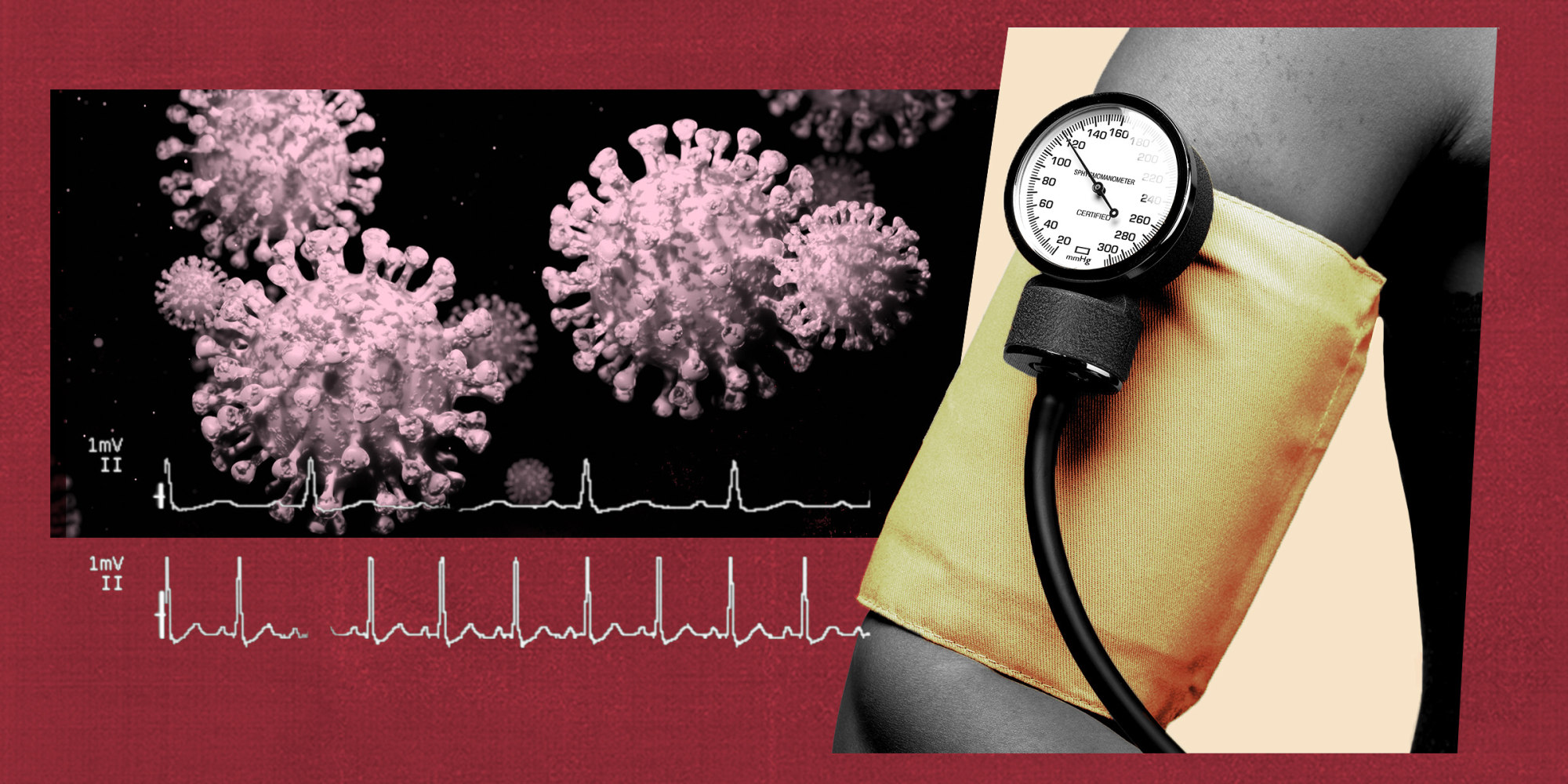Blood Pressure Rose During The Pandemic, Especially for Women, Study Finds

COVID-19 has already made millions sick, kept Americans from getting preventive care, and worsened depression and anxiety. Now here’s one more way the pandemic is taking a toll on our health: higher blood pressure.
When researchers looked at year-over-year changes in blood pressure readings for almost half a million Americans, there were no differences between 2019 and the start of 2020 — the period just before the lockdowns.
But they noticed “significantly higher” blood pressure increases from April to December 2020 — when the country was in the midst of pandemic precautions and closures — compared to the previous year, especially among women.
“It’s concerning because these sustained elevations can increase risk for things like strokes and heart attacks,” Dr. Luke Laffin, lead author of the study, published Monday in Circulation, and co-director of the Center for Blood Pressure Disorders at the Cleveland Clinic, told TODAY.
“A lot of the factors that we saw — people going to the gym less, being more stressed, getting worse sleep, eating more poorly — those can all have a pretty significant impact on blood pressure.”
'Outsized burden' on women
The findings were based on 464,585 people from 50 states and the District of Columbia. All took part in an annual employer-sponsored wellness program that required them to have their blood pressure checked during 2018, 2019 and 2020. The authors then compared the changes in their readings from year to year.
A normal blood pressure level is considered to be less than 120/80.
During the pandemic, the average increase each month, compared to the previous year, ranged from 1.10 to 2.50 for the top number of the reading, and 0.14 to 0.53 for the bottom number.
Those are “not huge increases” when just looking at the numbers, but even small rises increase a person's cardiovascular disease risk, Laffin said. Since the analysis involved a representative population of almost half a million people, and given that hypertension is a symptomless “silent killer” — already affecting about 100 million U.S. adults — he worried about the consequences down the road.
In the study, blood pressure rose for everyone across all age groups, but most prominently in women.
It’s more evidence of the “outsized burden that pandemics place on women,” the authors noted. Working mothers were often responsible for keeping up with their job demands, making sure their children were set up for remote learning, taking care of household chores and more.
Intriguingly, weight gain was not the apparent reason for the rise in blood pressure in 2020, because men lost weight during that time, on average, while women gained the same amount as before the pandemic, the study found.
Instead, possible reasons included people drinking more alcohol, being less physically active, experiencing stress, getting less medical care and not sticking with their medication routine.
Laffin suspected people’s blood pressure won’t go back to pre-pandemic readings for now and won’t rise further, but will plateau at the current increased levels. If it’s sustained, he predicted an increased incidence of strokes, heart attacks and cardiovascular disease in the next three to five years.
How to protect yourself:
First, know what your blood pressure numbers are. Get the reading at your annual physical, or try the blood pressure monitor at the local supermarket or drugstore.
“A lot of people don’t know their blood pressure is too high, particularly if they’re not getting regular medical attention, and then they already have end organ damage, they have thickening of their heart muscle, they may have kidney disease,” Laffin said.
If your blood pressure is elevated, talk to your doctor about what the next steps are. Most of the time, people don’t need medicines right away — they can adjust lifestyle factors like eating less salt, getting regular sleep and exercising, Laffin said.
If you were prescribed medicine before the pandemic and haven’t been taking it or haven’t been seeing your doctor regularly, schedule a visit to find out where things stand.
Consider buying a home blood pressure monitor if you have been diagnosed with hypertension. If blood pressure is well controlled, it can be enough to check it once a month, he noted.
“You have to stay very vigilant,” Laffin urged all Americans. “It’s really important at all ages to be to be cognizant of controlling blood pressure.”
The post Blood pressure rose during the pandemic, especially for women, study finds appeared first on TODAY

